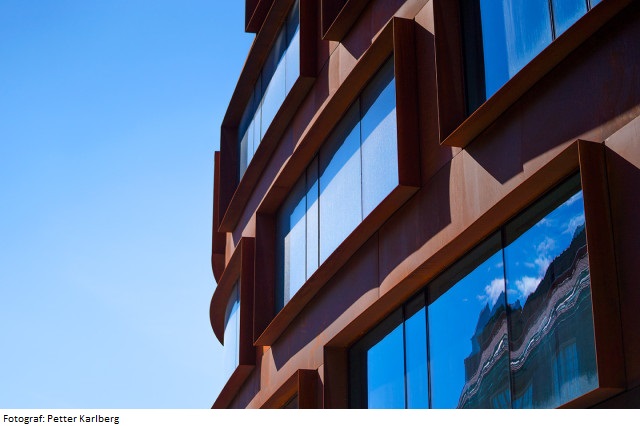In this course, students design a complex building that includes a public use. It offers amethodicalintroduction to the use of the conceptsstructure(structural analysis and geometry, spatial structure),place(site analysis, relating to a place), andactivity(user analysis,operational organization), which help students develop a conscious working process. Students work through and develop their projects in at least three scales.
A21P1C Architecture Project 2:1 Structure, Place, Activity 16.0 credits

Information per course offering
Information for Autumn 2026 Start 24 Aug 2026 programme students
- Course location
KTH Campus
- Duration
- 24 Aug 2026 - 11 Jan 2027
- Periods
Autumn 2026: P1 (9.5 hp), P2 (6.5 hp)
- Pace of study
50%
- Application code
50123
- Form of study
Normal Daytime
- Language of instruction
Swedish
- Course memo
- Course memo is not published
- Number of places
Min: 5
- Target group
- ARKIT study year 2
- Planned modular schedule
- [object Object]
- Schedule
- Part of programme
Contact
Course syllabus as PDF
Please note: all information from the Course syllabus is available on this page in an accessible format.
Course syllabus A21P1C (Autumn 2025–)Content and learning outcomes
Course contents
Intended learning outcomes
Literature and preparations
Specific prerequisites
57 credits in completed courses from year 1 of ARKIT, Degree Programme in Architecture 300 credits
Literature
Examination and completion
Grading scale
Examination
- APRO - Architecture project, 16.0 credits, grading scale: P, F
Based on recommendation from KTH’s coordinator for disabilities, the examiner will decide how to adapt an examination for students with documented disability.
The examiner may apply another examination format when re-examining individual students.
If the course is discontinued, students may request to be examined during the following two academic years.
Other requirements for final grade
General:
Learning outcome objectives are tested in design projects throughout the entireundergraduateprogram through students’ presentation of their process and results in assignments specified at the start of each course. To pass a course, students must also complete all assignments and have at least an 80% attendance at lectures, seminars, teaching opportunities, and assignment reviews.
Whether each student has fulfilled the learning objectives is determined by the examiner in conference with other faculty. They evaluate the student’s performance based on the following three parameters:
1. The student’s working process, project development, and questioning, and his or her documentation of these.
2. The student’s ability and skill to satisfactorily use and handle relevant representational forms and techniques and other design tools based on lectures, assignments, and learning objectives.
3. The student’s final presentation, the project’s qualities and possibilities, based on the student’s architectural and artistic exploration.
4. A reflection on the individual learning process must be handed in.
The project must be conducted within the given time frame of the course.
Special regulations for completion apply. The rules for completion can be found on the programme web.
Examiner
Ethical approach
- All members of a group are responsible for the group's work.
- In any assessment, every student shall honestly disclose any help received and sources used.
- In an oral assessment, every student shall be able to present and answer questions about the entire assignment and solution.